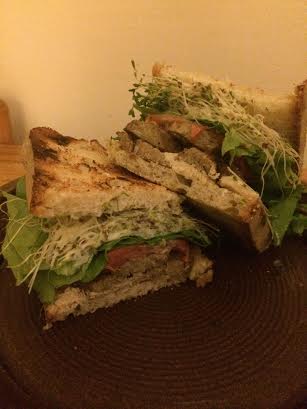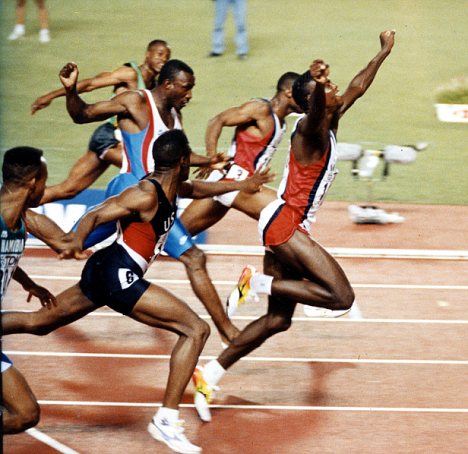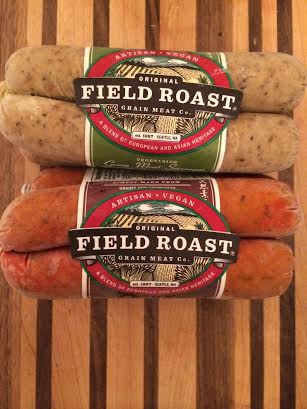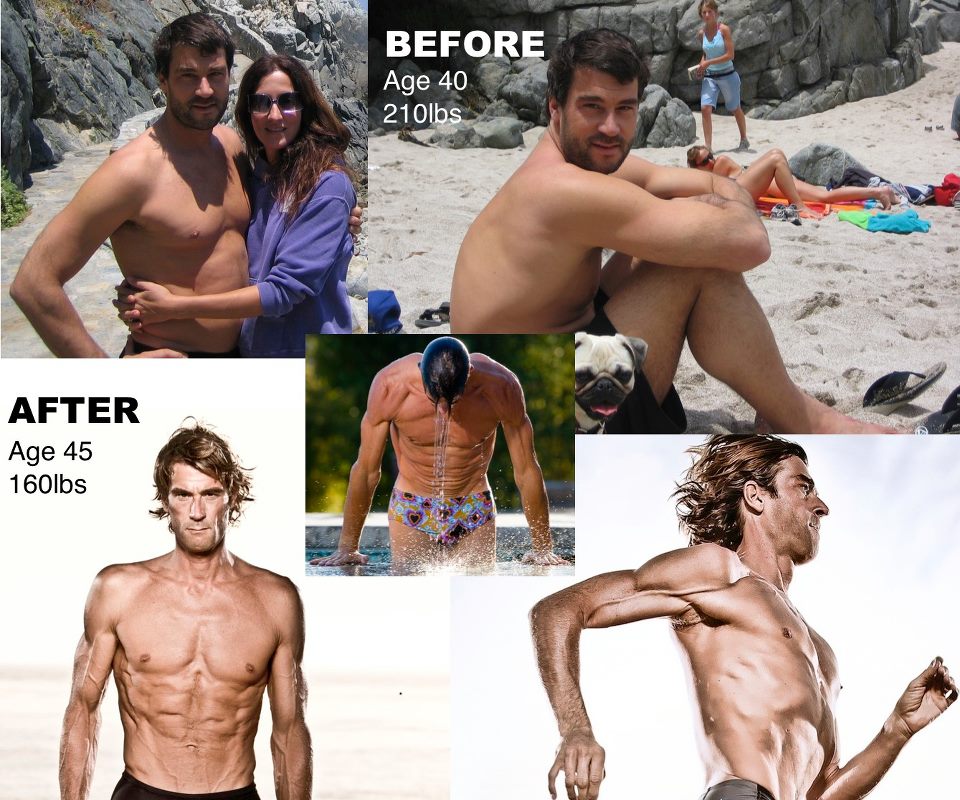An Odd Approach to Healthy Living: Veganism & Athletics, is it Possible or Irrational?
By Keare Smith
What if someone told you that a well-known world class Olympic track and field athlete competed while on a plant-based diet? Would you believe it? More than likely you’d wonder what kind of “world class” athlete in his or her right mind would want to or even manage to compete without eating meat. The question about protein would arise. How did this track athlete get enough protein from a plant-based diet to compete on a world class level? After everything you know about health and nutrition runs across your brain and you’re sure that this is impossible, you’d finally ask who this Olympian was. The answer is, the great Carl Lewis.
[am4show not_have=”g5;”]
[/am4show][am4guest]
[/am4guest][am4show have=”g5;”]
“Early in my career I was normal like kids and did that stuff and then I changed my diet to a vegan diet. I was a vegetarian and I set all of my personal bests at thirty years old as a vegetarian.” -Carl Lewis
“My best performances were when I was 30 years old and I was a vegan/vegetarian. Everyone says where is your protein? Well I ate tons of lentils, loved beans, had the juice. I did the things that I needed to do to replace what you would get with this tremendous amount of meat that most people eat.” – Carl Lewis
Carl Lewis was one of the greatest to ever compete in the sport of track and field. An all-around athlete, he excelled in the 100m, 200m, long jump and 4x100m relay. He broke world records and won nine Olympic gold medals while competing in a total of four Olympic games (should have been five but the US boycotted in 1980). He also won another eight career gold medals in world championships. During his career he was a dominant force in the sport of track and field. But what goes unnoticed by many is the fact that his greatest performances happened in the years 1990-1991, when he was practicing a vegan/vegetarian diet. At the 1991 world championships in Tokyo, he broke world records and set new personal bests. In the 100m he set a new world record of 9.86. In the long jump he was defeated by Mike Powell, who set a new world record with a 29-4½ ft leap. But Lewis also broke the previous world record that day with a 29-2½ ft wind-aided jump. After his 100m victory Lewis cried tears of joy and would go on to say it was “the best race of my life.” It was the fastest he had ever run. And he did it at age thirty, on a vegan/vegetarian diet.
What is a Vegan?
Although the words vegan and vegetarian are now commonplace in the American vernacular, most individuals are very unfamiliar with the specific meanings of the two terms. Although this article is more focused on veganism (that’s the lifestyle I practice), the first and most important concept to understand is the difference between a vegetarian a vegan. The two words sound similar, but one is more restrictive than the other. Below are the official definitions found on the vegetarian society website:
Vegetarian: a vegetarian is someone who lives on a diet of grains, pulses (legumes), nuts, seeds, vegetables and fruits, with or without the use of dairy products and eggs. Or a vegetarian simply does not eat meat, poultry, game, fish, shellfish or crustacean, or by-products of slaughter. There are different degrees of vegetarianism. The four most common forms of vegetarianism are:
Lacto-ovo-vegetarian: eats both dairy products and eggs. (most common type of vegetarian diet)
Lacto-vegetarian: eats dairy products but not eggs
Ovo-vegetarian: eats eggs but not dairy products
Vegan: does not eat dairy products, eggs, or any other animal product.
Although the vegan diet is technically a branch of vegetarianism, many vegans consider it a distinctive lifestyle. The vegan society defines veganism as: a way of living which seeks to exclude, as far as is possible and practicable, all forms of exploitation of, and cruelty to, animals for food, clothing or any other purpose. To put it simply, a vegan is a person who does not eat any food that comes from animals and who often also does not use animal products (such as leather).
What Does a Vegan Eat?
Nowadays its hard to overlook the endless supply of veggie dogs and veggie burgers in the grocery store. But most vegans eat a lot more than just meat substitutes. A well-planned vegan diet consists of fruits, veggies, beans, legumes, nuts, seeds, and sprouts. And there are also those weird veggie dogs and other meat substitutes such as tofu, seiten, and tempeh. These meat substitutes are made from vegetables such as wheat and soybeans and texturized to closely imitate meat. Vegans of today are lucky. They have a wide variety of flavorful meat and cheese substitutes in the grocery stores to choose from, which make being a vegan not nearly as bland as one may think. My personal favorite is field Roast Grain meat sausages and Doctor Cow aged cashew cheese. Although I consume meat substitutes, my diet is built around fruits and vegetables. I firmly believe that athletes should consider a diet that includes mostly fruits and vegetables. It’s natural, and you’ll feel amazingly energetic.

My dinner from the other night. A seiten Sandwich with alfalfa sprouts, boston lettuce, tomato, cashew cheese, and a delicious tofu dill sauce.
What about Protein?
Vegans get their protein from a variety of whole grains, vegetables, nuts, seeds and beans. These food sources provide more than enough protein to stay healthy. Many people (meat eaters) unknowingly consume too much protein; the body just uses the urine to excrete the excess protein. Many people are led to believe we need to consume much protein to survive and grow, but many of the old protein experiments that led to these beliefs have been proven incorrect. There is a good amount of protein in some vegetables, including broccoli and spinach. And for those athletes who are used to drinking a milk-based whey or casein protein shake after their workouts, there are some nice vegan alternatives to protein powders. One of the most popular is a plant based protein powder created by the company Vega. At 15 grams per serving, Vega is comparable to other protein powders, but it doesn’t come with all of the dairy, added sugar, artificial flavors, colors or sweeteners. Although Vega is a great choice for vegan or regular athletes, my personal favorite is hemp protein powder. Hemp contains high quality plant protein and essential amino acids. It’s super easy for the body to digest and has a very subtle nutty flavor that is a perfect addition to a banana shake with almond milk and cinnamon.
Why Go Vegan?
PETA (People for the Ethical Treatment of Animals) made me do it! Seriously though, what motivates the one million vegans in America to completely exclude meat and other animal products from their lives? Why has the number of vegans more than doubled in three years? The number one reason is definitely animal cruelty, followed by health reasons and environmental impact. In a previous article titled in this “An Odd Approach to Healthy Living” series I gave readers a look into the my passion for dieting and health and explained how I got into healthy living. But it wasn’t a book, health guru, or an article that led to my decision to give up meat for good. It was a very controversial documentary called Earthlings.
This film changed my view on consuming meat by making me realize exactly how animals are mistreated by humans. Earthlings is an award-winning documentary that covers the suffering of animals for food, fashion, pets, entertainment, and medical research. According to their website, it is the most persuasive documentary ever made, and is known as the “vegan maker” for its sensitive footage shot at animal shelters, pet stores, puppy mills, factory farms, slaughterhouses, the leather and fur trades, sporting events, circuses, and research labs.
My fiancé Rachel and I watched the film in December 2013 and immediately agreed to go vegan in 2014. The images in this film were shocking. I couldn’t believe that humans were capable of some of the heartless actions that took place. Eating meat wasn’t the same anymore. It just didn’t feel natural.
One of the added bonuses of being a vegan athlete is all of the health benefits that come as a natural consequence of a well-planned vegan diet. Although the consumption of meats, dairy, and eggs are excluded, a well-planned vegan diet will provide all of the key nutrients one needs to sustain life and compete at a high level. Studies have shown that vegans are far less likely to get cancer, heart disease, diabetes, osteoporosis and many other common diseases that are plaguing Americans. Vegans also have immaculate immune systems and are less likely to be overweight. One of the biggest health benefits that is really beneficial for an athlete is the increase in stamina and the light, clean feeling that comes with eating a well-balanced diet with plenty of vegetables and fruits.
Extreme endurance athlete Rich Roll can attest to this fact. Roll has been a frequent guest on CNN, was named one of the “25 fittest men in the world” by Men’s Fitness magazine and his book Finding Ultra: Rejecting Middle Age, Becoming the World’s Fittest Man, and Discovering Myself was an Amazon #1 best-seller. In the last five years he’s completed multiple iron man races and placed 11th in an ultra man race. In case you don’t know, an ultra man competition is a three-day race consisting of a 6.2 mile open ocean swim, a 261.4 mile cross-country bike ride, and a 52.4 mile double-marathon run. By the looks of his recent photos at age 45, it would be hard to imagine that at age 40 Roll was overweight and out of shape. After having a moment of clarity while having to stop to catch his breath while walking up the stairs in his own house, he decided to adopt a vegan diet and hasn’t turned back since.
As Carl Lewis put it, most athletes have the worst diet. Many are convinced that there is a certain meat protein based dietary mold that athletes must follow. Or they go with the classic “just eat whatever you want because you’re an athlete” diet. But Rich Roll and Carl Lewis chose a different path. Not many track athletes are able to set personal bests at age thirty or compete in an ultra man race in their forties. These guys did it, and they did it on a vegan diet. They set good examples for other athletes to follow. They proved that you shouldn’t limit yourself to just carb-loading before races and eating protein after lifting weights. The importance of fruits and vegetables and clean eating should not be overlooked by athletes. Through the years I’ve learned that dietary habits cannot be overlooked if an athlete wishes to perform at his or her best. I am proud to be a part of the 2.5% of US Americans practicing a vegan lifestyle.
***
If you are interested in learning more about some great vegan documentaries or books, email me at smithkeare@gmail.com
[/am4show]



